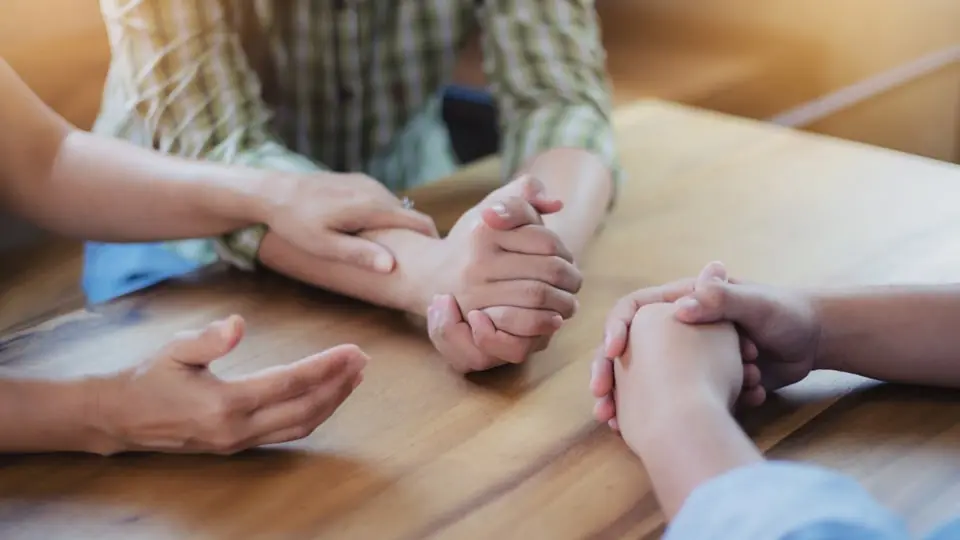Becoming stuck in the cycle of addiction is one of the most painful experiences imaginable. If you struggle with chronic relapse, you might feel completely hopeless. You want to achieve recovery, but your addiction just feels too strong. No matter how many inpatient programs you complete, therapy sessions you attend, or support groups you join, you always feel like you’re on the brink of relapse.
Chronic relapse is a self-perpetuating cycle that can get stronger and stronger over time. The typical chronic relapser has been through inpatient treatment multiple times with multiple programs. They’ve gotten sober more times than they can count, but those periods of sobriety always end in relapse. Because they’ve been through treatment so many times, they understand the principles of addiction and the building blocks of recovery. According to studies, more than 85% of people relapse and return to drug use within a year of treatment. Despite this knowledge, the chronic relapser continues to return to their substance of choice over and over.
Chronic relapse is difficult to overcome, but it is possible with the right approach. You should understand what chronic relapse looks like, why it happens, and what you can do to break the cycle.
Burning Tree Ranch is the Nation’s only long-term inpatient and aftercare program designed exclusively for the chronic relapser.
The Stages of Addiction Relapse
Chronic relapse does not look the same for everyone, but it typically follows the same general pattern. You regularly use drugs or alcohol to escape from your pain, and your substance use continues despite personal, professional, financial, or legal consequences. You may become physically dependent on the substance and start to require higher and higher doses to feel the effects.
As the addiction spirals out of control, you recognize that you need to change and consider seeking treatment. Eventually, you commit to inpatient, outpatient, counseling, or other forms of support. You get sober and work toward your physical and mental health goals, but the thought of relapse is always in the back of your mind.
Emotional and mental relapses typically happen before the physical relapse. The stress of your life builds up and becomes harder and harder to withstand. You’re finding it difficult to take care of yourself and prioritize your own health. You wonder if returning to drugs or alcohol will provide relief, and your drive to stay sober gets weaker and weaker.
Then, you experience a physical relapse. Sometimes, the chronic relapser goes back to their initial drug of choice. Sometimes, they seek out a different substance. Chronic relapse can be physically dangerous because your body’s tolerance for the substance may have changed during your period of sobriety.
Why Do We Experience Chronic Relapse?
To break the cycle of addiction, you have to understand why you struggle with chronic relapse. When you can identify the reasons for your chronic relapse, you can avoid them in your next round of treatment.
Inadequate professional support is one of the most common causes of chronic relapse. This can happen in a number of different ways. Maybe you went to rehab for one month when you really needed two or three months of inpatient treatment. Maybe you graduated from inpatient but didn’t receive any follow-up support from doctors or therapists. Maybe you started treating your addiction with weekly counseling sessions but needed a more intensive form of support to begin your recovery. To fully overcome your addiction, you need long-term chronic relapse treatment that is tailored to your own needs.
Failure to treat co-occurring disorders is another key factor in chronic relapse. The typical chronic relapser struggles greatly with mental health. In many cases, mental health disorder is the driving force behind addiction. According to the 2021 National Survey on Drug Use and Health conducted by SAMHSA, roughly 9.2 million adults in the United States have a co-occurring disorder. Without adequately treating your mental illness, you will not be able to let go of your substance use.
You might also struggle with chronic relapse if you keep returning to people, environments, or situations that historically pervaded your addiction. Recovery may require you to reinvent your entire life. You might have to distance yourself from toxic friends that encouraged your substance use, and you may have to avoid the places you used to drink or use drugs.
Stressful life events greatly increase the risk of relapse, too. Unfortunately, stress is often outside of your control. You can, however, make sure you have a strong support network and professional mental health services in place to help you withstand stress without relapsing.
Breaking the Cycle of Chronic Relapse
No matter how severe your addiction is, there is always hope for overcoming chronic relapse. Try to figure out what was missing from your past attempts at recovery. Did you not receive enough professional support? Was your family uninvolved in the treatment process?
A thorough, long-term treatment plan is your best defense against chronic relapse. Treating your co-occurring mental health disorders is absolutely critical, too. You and your team should do everything possible to lay the groundwork for long-term recovery. This includes addressing physical, mental, emotional, spiritual, and social health goals. After you leave your initial phase of treatment, you should continue receiving addiction services, such as counseling and support groups.
Including your family in the treatment process is another great way to fight chronic relapse. Addiction affects the entire family, and it’s important to heal the family relationships that have been harmed by substance use. When your family is actively involved in your recovery, they’ll be more equipped to offer you the support that you need.
The work you put into your recovery makes an enormous difference, too. Abstaining from drugs and alcohol is only one aspect of recovery. To achieve true healing, you have to get to the root of your addiction. You and your counselors should explore why you turned to substances and what you can do instead to manage pain and stress. Developing healthy coping skills is an ongoing process, but it should start at the beginning of your recovery. When you have a toolbox of strategies that work for you, you can face challenging situations without experiencing a relapse.
Holding yourself accountable is also vital when breaking the cycle of chronic relapse. Cravings are to be expected, especially in the first weeks or months following treatment. You have to notice when you’re struggling and reach out for support. Additionally, you have to be honest with yourself about the pieces of your life that are holding you back. Sometimes, a chronic relapser has to step away from toxic people or change their environment to stay on track with their recovery.
Long-Term Treatment for Chronic Relapse

Burning Tree Ranch offers long-term treatment for chronic relapse. We understand how painful chronic relapse can be for individuals and their families, and we use a unique approach to treatment that empowers our clients to break the cycle. If you or a loved one is a chronic relapser, contact us today to learn more about our chronic relapse programs.

